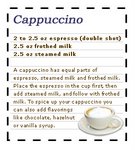With all the medical jargon and new scientific studies bandied about on the news it can be hard to know what’s good for you from one day to the next. Are tomatoes good or bad? Should you drink red wine? Does chocolate cure heart disease? Will eating an all organic diet save you from cancer? It can all be a bit overwhelming and no one, not even scientists can seem to agree on much.
But one thing that scientists do agree on is that antioxidants are important to regulate and sustain normal cell processes. So what’s an antioxidant and how can you get what you need? Read on to find out!
What’s an antioxidant?
Antioxidants are substances that the body produces to fight the effects of free radicals. What’s a free radical, you may ask. Free radicals are not rioting miscreants or rampaging anarchists, they are reactive chemicals that get produced when molecules are split to create unpaired electrons and other external elements like UV rays, x- rays, pollution and radiation. Sounds pretty deep, huh? What that really means is free radical damage essential cellular molecules. Damage at the cellular level is never a good thing.
What are the benefits?
Antioxidants counteract the damage done by the free radicals to cells by regulating cellular processes and forming healthy bonds. Basically this means that they can repair the damage done by UV and x-rays as well as the pollution we’re all exposed to. Eating 5-7 servings each day can supply you with the antioxidants and other healthy minerals and nutrients needed to combat age-related diseases.
Where do I find them?
Good news! Antioxidants can be found in lots of places! Chances are that you already eat some every day. Found in leafy, dark green veggies like kale and spinach as well as in bright colorful vegetables like red and yellow peppers, carrots, blueberries, raspberries and in vitamin C and E.
Subscribe to:
Post Comments (Atom)











No comments:
Post a Comment